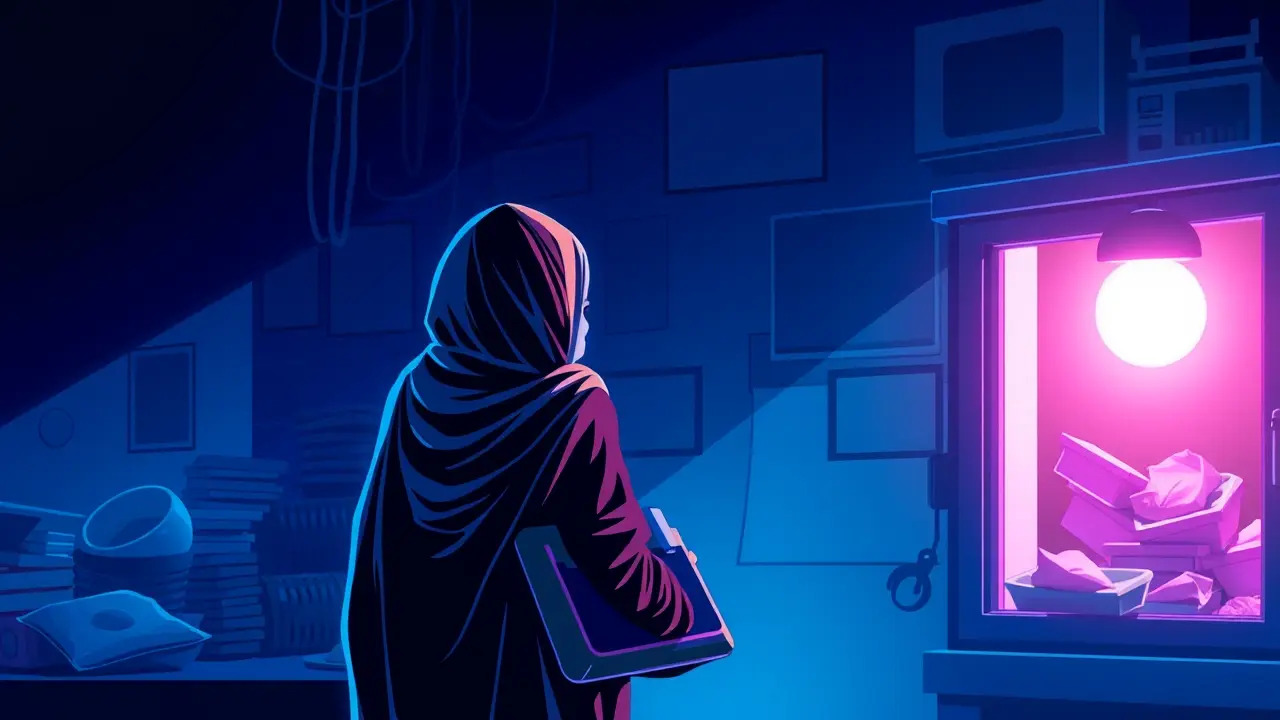UN Urges Israel to Open More Crossings for Gaza Aid
The urgent call from the United Nations for Israel to open more crossings for humanitarian aid into Gaza lands not as a dry diplomatic communiqué, but as a stark, human plea against a backdrop of profound anxiety, where the fragile hope of a ceasefire is already being preemptively mourned by a population bracing for its collapse. In the cramped apartments and makeshift shelters of Gaza, the act of stockpiling meager food supplies is not merely a practical response to potential supply chain disruption; it is a visceral, psychological scar, a testament to a trauma so deeply ingrained that trust in any political process has been utterly eroded.This isn't just about trucks and checkpoints; it's about the fundamental breakdown of human security, where the basic assurance that one can feed one's children tomorrow is a luxury shattered by the relentless cycles of conflict. We must view this through a lens that centers the lived experience, predominantly of women and children, who bear the disproportionate burden of this instability—they are the ones queueing for hours, rationing what little they have, their daily lives a silent referendum on the failures of international diplomacy.The UN’s plea, therefore, is more than a logistical request; it is a critical indictment of a closure policy that has long functioned as a form of collective punishment, strangling the Gazan economy and creating a state of perpetual dependency. One can draw a direct line from the high-level debates in New York to the empty pantry of a mother in Rafah, a connection that underscores how geopolitical power plays manifest as tangible hunger and fear.The personal impact of leaders’ decisions is etched into the weary faces of those who have lived through too many broken promises, their current actions—hoarding what they can—speaking louder than any ambassador’s speech. This moment demands a feminist, empathetic critique of the power structures at play: why is the suffering of civilians consistently used as a bargaining chip? The narrative isn't merely one of aid delivery; it's a story of dignity, of agency, and of the right to live without the specter of starvation being wielded as a weapon of war. As the international community watches, the very credibility of humanitarian law and the principles of protection for the most vulnerable hang in the balance, with the simple, desperate act of stockpiling food serving as the most tragic and eloquent commentary on our collective failure.
Latest News
The charts are whispering what the true believers have felt in their bones for weeks—Dogecoin is carving out a bottom.
17 hours ago5 comments
The Institute for Fiscal Studies has thrown a stark warning onto Rachel Reeves's desk, urging the Chancellor to confront a potential £22 billion shortfall in
17 hours ago3 comments
Alright, let's break down this absolute heater of a performance from the Chicago Blackhawks, because if you missed this one, you missed a party.
17 hours ago5 comments
The ice was hot last night in the NHL, folks, serving up a slate of games that felt less like a regular season Tuesday and more like a playoff preview with a
18 hours ago3 comments
The XRP chart is painting a tantalizing picture for those with the stomach to withstand the relentless pressure from crypto's leviathans.
18 hours ago4 comments
It’s in the small shifts, the quiet recalibrations of a Thursday morning, where the most meaningful change often takes root.
18 hours ago4 comments
In a move that sent ripples of quiet confidence through the crypto ecosystem, blockchain intelligence firms tracked a monumental treasury allocation from
18 hours ago4 comments
In a move that would have drawn a nod of approval from historical figures like Churchill, who understood the delicate balance of power within democratic
18 hours ago2 comments
JA
Jamie Miller123k9 hours ago
wow that's heavy to read first thing in the morning idk it just feels like we see this same story every few years and nothing changes
0
JA
Jamie Larson123k11 hours ago
this is so grim tbh when does it end
0
CH
Chloe Bennett123k12 hours ago
oh great, more high-level debates that will definitely fix the empty pantries this time 😂 idk maybe just let the food in
0
JA
Jamie Lawson123k15 hours ago
this feels like a plot from a dystopian movie but it's real life smh how is this still happening
0
JA
Jamie Larson123k20 hours ago
saving this to read properly later tbh it's crazy how this stuff just keeps happening smh
0
JA
Jamie Wilson123k21 hours ago
wait but if they open the crossings does that actually mean aid gets through or is it just for show idk it all feels so performative sometimes and my brain is going in circles trying to figure out what's real
0
CH
Chloe Miller123k1 day ago
this article really hits different, it’s heartbreaking to think about the families just trying to get by
0
